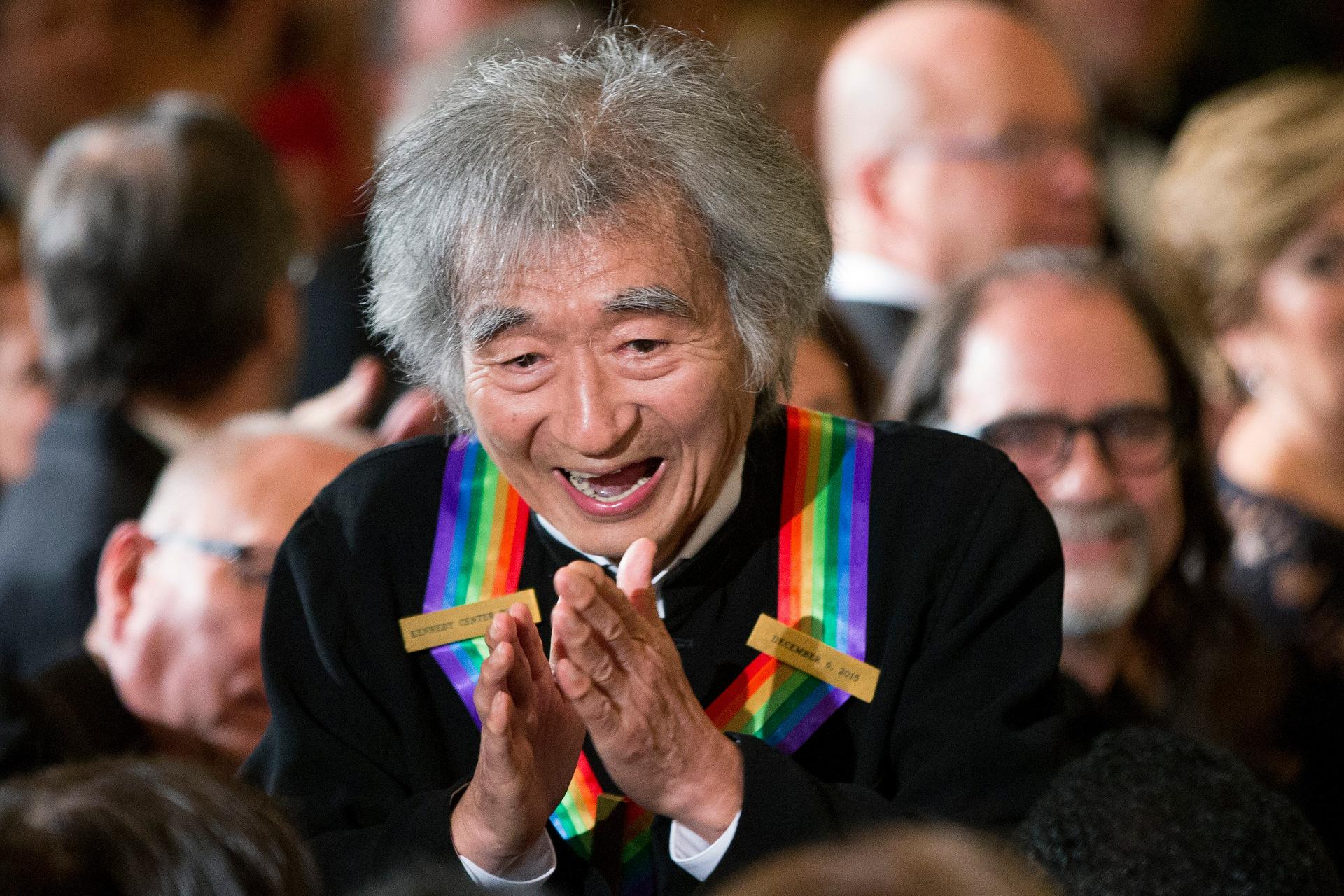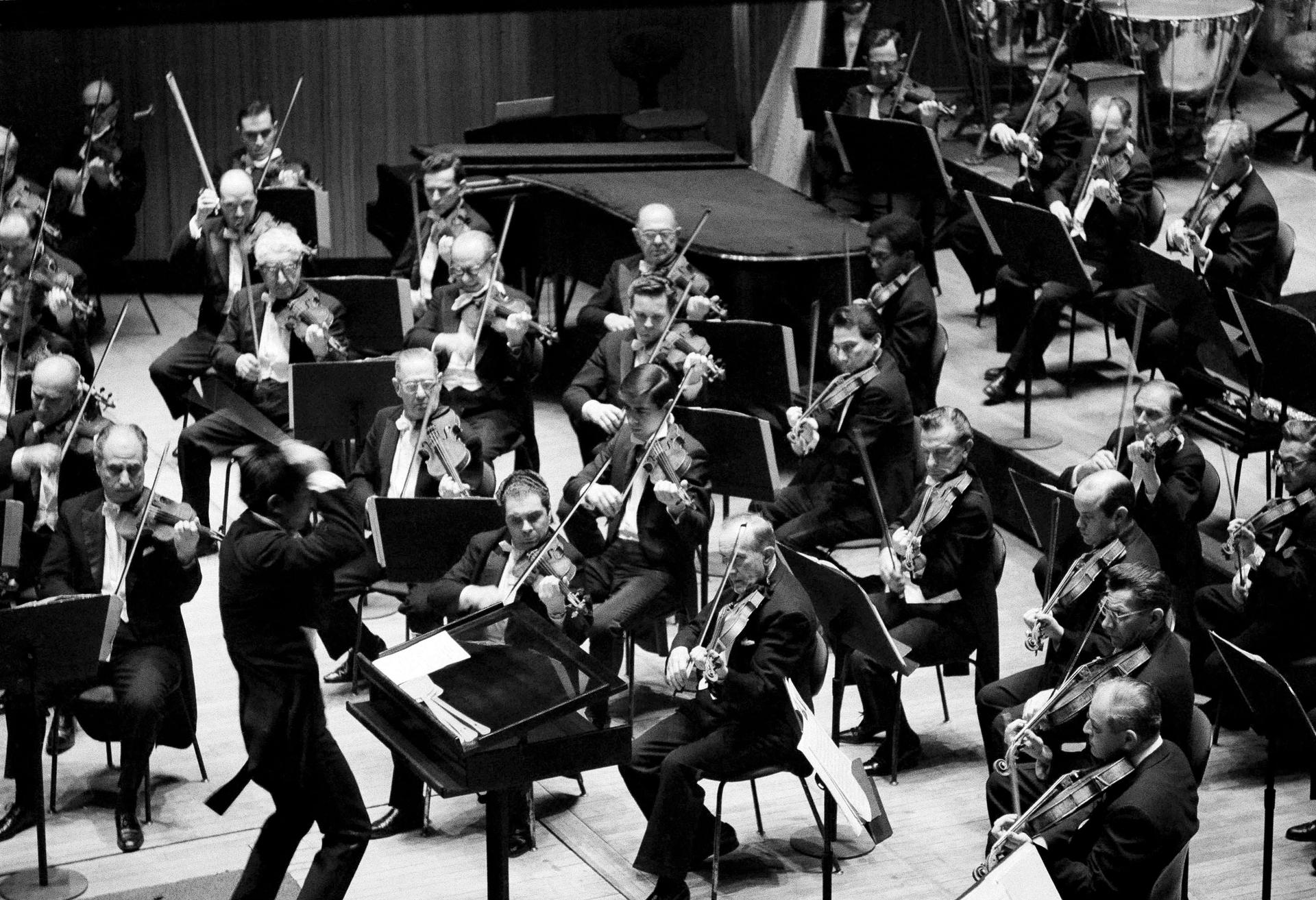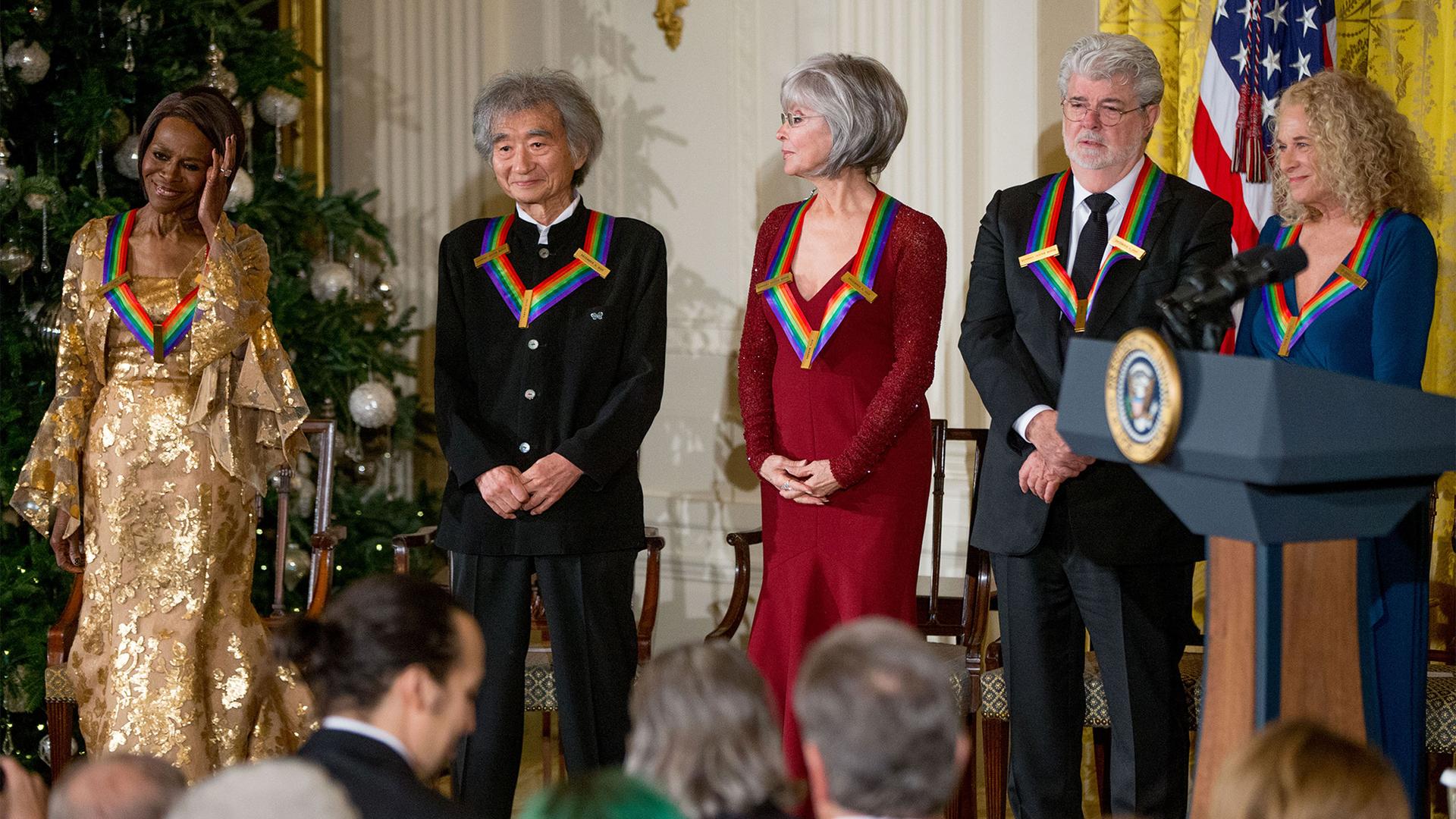The classical music world has lost a towering figure. Seiji Ozawa, who led the Boston Symphony Orchestra (BSO) for nearly three decades, died this week at the age of 88, in his home country of Japan.
The World’s host Carolyn Beeler spoke to Brian McCreath, who broadcasts the Boston Symphony Orchestra on WCRB in Boston, to discuss Ozawa’s life and legacy.

Carolyn Beeler: Seiji Ozawa was born in part of Japanese-occupied China in 1935, before the end of World War II, and I understand his career took off here in this country in the ’60s. Tell us how that all got started.
Brian McCreath: It really kind of started in Europe. He won a competition in France which caught the notice of another legendary Boston Symphony music director. That’s Charles Munch, who invited Seiji to come to Boston, really to study at Tanglewood at what was known as the Berkshire Music Center at the time, now called the Tanglewood Music Center in western Massachusetts, where the Boston Symphony spends the summers along with its academy there. Seiji was one of the conductors there who studied with Munch and with others and won the Koussevitzky Prize, which is kind of a big deal, given to the best conducting student of the summer every year. And so, that brought him to the attention of a ton of people. And then, his career really took off through the 1960s.
And when he joined the Boston Symphony Orchestra, in the early 1970s, how big of a deal was it to have a conductor from Japan in a role like that?
It was, maybe not unprecedented, but extremely unconventional. So, Seiji was coming in at a time when the orchestra had gone through a few years of music directorship of William Steinberg, a German conductor, and previous to that, several years had been spent with Erich Leinsdorf, an Austrian conductor. So, there’s this very heavy Central European focus that the BSO had, both in its sound approach and in its, sort of, profile internationally. So, you bring in Seiji, who is extremely gifted, sort of supernaturally gifted almost, as a conductor. And he brought with him an audience in Japan and throughout Asia. And all of a sudden, there was a new group of people paying attention to the Boston Symphony. It launched the Boston Symphony, already an international orchestra, to a new level of renown around the world. And frankly, the audience connection to the Boston Symphony in Asia remains to this day.
I gather that there was a sense among classical music critics that someone from Asia couldn’t really understand Western classical music back when he took the helm of the BSO. And I was struck by this quote in The Boston Globe back in 1999. Ozawa SAID: “I know I’m a test case. Everyone wonders how much I can learn, how much I can understand.” Can you put that into context for us?
Well, there is a bias, especially back in the 1960s and early ’70s, such a prevalent bias of, sort of, tradition and heritage being part of classical music, that you must come from a certain part of the world to understand the soul of classical music. And frankly, a lot of Europeans felt that way about the United States, too. So, when Seiji comes along, not only does he disprove this comprehensively, what he brings as well is a brilliance of conducting that very few conductors have ever matched. He brought a physicality to his art that was almost, as I’ve heard it described, like a ballet dancer. Everything he did physically communicated what he wanted from the musicians in the nuance and the interpretation of the music they were playing.
I think you said that his conducting was like watching a ballet dance. Can you tell me a little bit more about what it looked like to watch him conduct?
Yeah, I mean, he wasn’t a large man physically. He was a little bit on the diminutive side, but he had this, for most of his career, he had this big hair, kind of a mop-top hair, right? And so, when you watched him, he was graceful. His body would bend in certain ways and move in certain ways in time with the music. Now, sometimes we in the audience watch conductors, and it’s almost as though they’re performing the music physically. That wasn’t the case so much with Seiji. It all had a meaning. In fact, one BSO executive at one point told me that he watched in a masterclass Seiji teach students to begin pieces of music like, say, Beethoven’s “5th Symphony,” actually one of the hardest pieces of music to conduct at the very beginning. He would teach his students to do that with no hands, no arms. They would have to do it basically with their eyes and facial expression. That’s the kind of thing that he could pull off. Now, of course, he did use his hands and arms when he conducted that music in a concert, but that was the the extent to which the physicality of the music moved through his body and communicated to the musicians in the orchestra.
Wow, conducting just with a raised eyebrow or a glance sounds very powerful.
Yeah, yeah, exactly.

You mentioned that Ozawa revitalized the Boston Symphony Orchestra and really developed a big fan base in Asia and other parts of the world. Can you tell me more about that international legacy?
Yeah, absolutely. I mean, Seiji, again, he had a huge following in Europe. The orchestras there, by and large, loved to have him come in and be a guest conductor. But along with the fan base or the audience that you might find in Japan and throughout Asia, he also had the backing of major corporations in Japan, which had its own benefits for the Boston Symphony, which wasn’t in terrible shape in 1973, but like a lot of the economy at that particular time, it was a bit rough. Seiji opened the door to corporations like Sony and TDK and Nippon Electric supporting the orchestra with their sponsorship. So again, the affection for Seiji in Japan and throughout Asia spread to the rest of the world everywhere classical music was heard.
I know you didn’t know him personally, but were there any aspects of Ozawa’s personality that he was especially known for?
He became very well-known around Boston for his enthusiasm for our sports teams. And you can find dozens of pictures of Seiji wearing a Red Sox hat or Red Sox jersey or coat. And he was constantly showing up at Fenway Park. Also a big fan of the Celtics and every other sport that was in Boston; the orchestra would make sure that he had access to the latest scores wherever he was. You know, how the Red Sox were doing in the standings, all of these.
Oh, those kinds of scores?
Yeah, of course, they supplied him with the scores he needed for his job, too. But yes, he was full of life. When you hear people talk about him, they speak of someone who was warm and generous. He was not uncontroversial, though. I mean, he made some moves during his time with the Boston Symphony that were hard-edged and almost ruthless. And so, there is that side of him as an organizational leader where he took difficult decisions, was not well-received at times, but that’s part of the game of being a major league music director of a major orchestra.
This interview has been lightly edited and condensed for clarity.
Less than .05% of listeners will donate. Can we count on you?
Our coverage reaches millions each week, but only a small fraction of listeners contribute to sustain our program. We still need 224 more people to donate $100 or $10/monthly to unlock our $67,000 match. Will you help us get there today?
